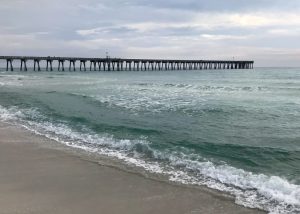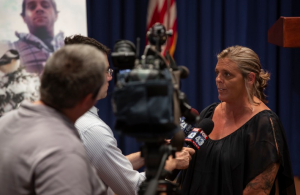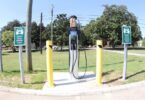Drug dealers aren’t the only ones getting rich off the opioid crisis.
Pennsylvania officials warned recently of out-of-state treatment facilities and “sober living homes” that use predatory practices to take advantage of those suffering from substance abuse for their financial gain.
Jennifer Smith, secretary of the Pennsylvania Department of Drug and Alcohol Programs, said that those battling substance abuse are “among our most vulnerable Pennsylvanians” and are being taken advantage of by some facilities.
“While there are many reputable facilities in other states, instances of individuals being recruited to other treatment centers with offers of payment for travel or health insurance coverage can lead to insurance fraud, misleading or dangerous living conditions, and individuals with substance use disorder failing to receive the treatment they need,” Smith said.
Over the past year, at least three Pennsylvanians have died in out-of-state facilities and many more have suffered difficulties.
“The opioid crisis has unfortunately opened the door to unscrupulous people who prey on these families to lure unsuspecting individuals in need of treatment to facilities that may provide little or no treatment, and can lead to more problems, including financial ruin, and even death,” said Pennsylvania Insurance Commissioner Jessica Altman.
State officials said there are plenty of treatment centers in the Keystone State that offer safe environments. However, some shady out-of-state facility owners will lure those looking for treatment with images of the beautiful weather, free airfare, insurance payment reimbursement, and claims of a fresh start.
Pennsylvania’s major health insurers have reported that 7,157 state residents have received substance use disorder treatment out of state over the past two years. In total, nearly 17 percent of all Pennsylvanians undergoing treatment have traveled out of state.
The crooked facilities that often lure people out of Pennsylvania are located in Arizona, California, and Florida, officials said.
“Operators of these facilities have also found ways to bilk insurers and consumers out of hundreds of millions, or even billions of dollars, through fake and inflated insurance claims,” Altman said.
A group of facility operators in Florida have been accused by state and federal authorities of running a $58 million insurance claim scam. The accused reportedly billed insurance companies for services never provided and jacked up the prices of regular drug testing, according to a report.
NBC News published an article last year that stated some of those who were seeking treatment were taken advantage of by crooked treatment facilities that sought out patients with good insurance.
“This is an entire industry that’s been corrupted by easy money,” Palm Beach County, Florida, State Attorney Dave Aronberg told the network. “Unscrupulous actors have taken advantage of well-intended federal law, and a lack of any good law at the state level, to profit off people at the lowest stages of their lives.”
J.J. Baker, who grew up in rural Wyoming County in northern Pennsylvania, struggled with substance abuse problems for years. He went to Florida for a second stint in rehab in 2015 upon the offer of a rent-free room at a recovery home while in treatment.
His parents said that they received a bill for $208,000 for drug testing, while Baker received a prescription from a doctor for testosterone, which ended up getting him kicked out of the recovery home by house managers.
Three days later, Baker was found dead in his car with a needle still in his hands in Delray Beach, Florida, his mother Lizz DeWolfe said.
“Addiction is really complicated, and sometimes in our efforts to get our loved ones into recovery, we don’t see things that should make us ask questions,” DeWolfe said. “J.J. was offered free rent but we all know that nothing is free. Remember if they offer anything free, it is a sign that it may not be a reputable facility.”
Smith and Altman laid out a list of what people should look for to avoid falling victim to an out-of-state addiction treatment scam. These include:
- Any unsolicited referral to an out-of-state treatment facility;
- Someone offering to pay for airfare or other travel expenses to an out-of-state facility;
- Someone offering to pay for insurance coverage — these payments could end at any time leaving you with no coverage;
- Someone asking you to provide personal information, such as your Social Security number or insurance policy ID number.
“Solicitors may also attempt to lure someone to a recovery or sober home. Be wary of homes claiming insurance will pay rent or other costs of staying at these homes because they provide no medical treatment and do not receive payment from insurance. Also ask if the sober or recovery home is registered or certified by a state agency or designee. In Florida, this is the Florida Association of Recovery Residences, which certifies sober homes meet 38 standards for recovery, housing, administration, training, finance and good-neighbor practices,” state officials said.
Medical bills and insurance payments for those undergoing treatment out-of-state should be monitored closely. Altman said private insurance payments for drug testing will vary, but Medicare pays about $80 for drug test and between $117 and $254 for a more sensitive confirmation tests.
While in-state recovery home regulations are still in the works, many already follow similar guidelines in the Pennsylvania. The Bucks County Recovery House Association, a peer group of recovery home owners, have set up their own guidelines and have worked with state lawmakers on regulations.
“Getting timely help can be key to saving a loved one’s life, but families need to be sure they are dealing with a reputable facility,” Altman said. “The bottom line is, if someone is being paid to recruit you or a loved one to an out-of-state facility, they may not have your best interests in mind.”
State officials advised Pennsylvanians seeking treatment for themselves or a loved one to contact the Bucks County Drug and Alcohol Commission or the free Pennsylvania Get Help line at 1-800-662-HELP (4357).










